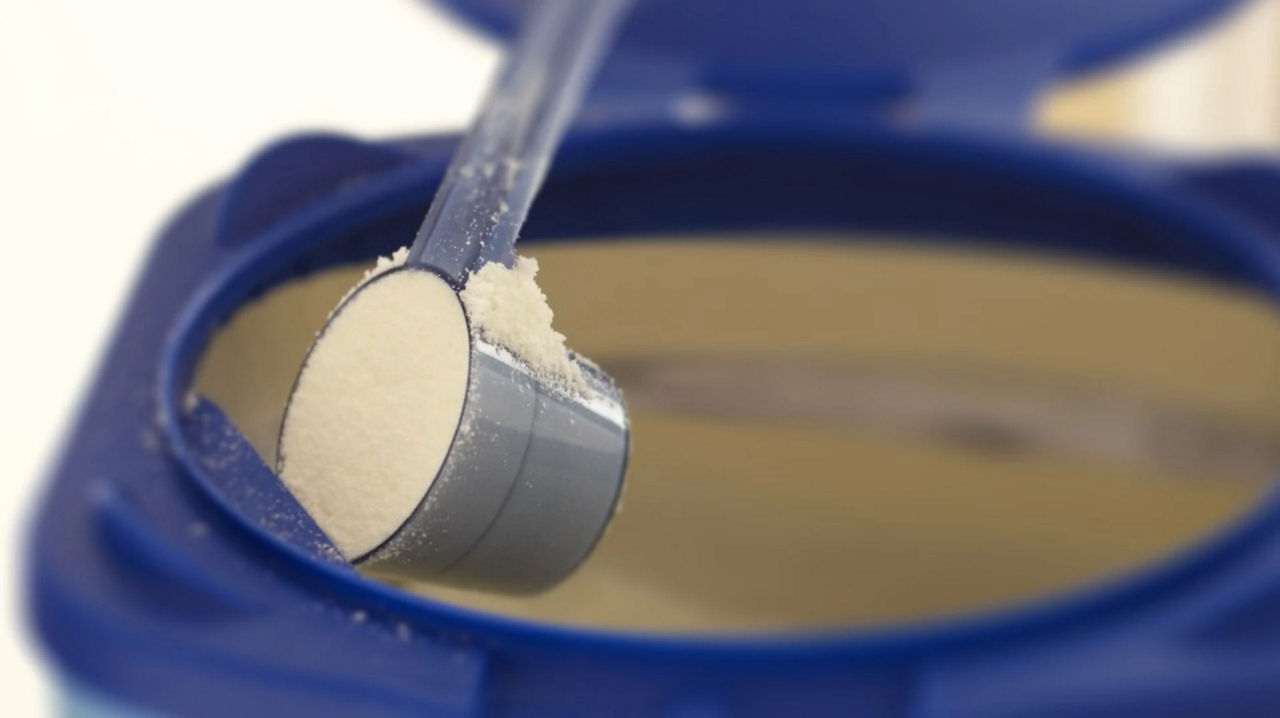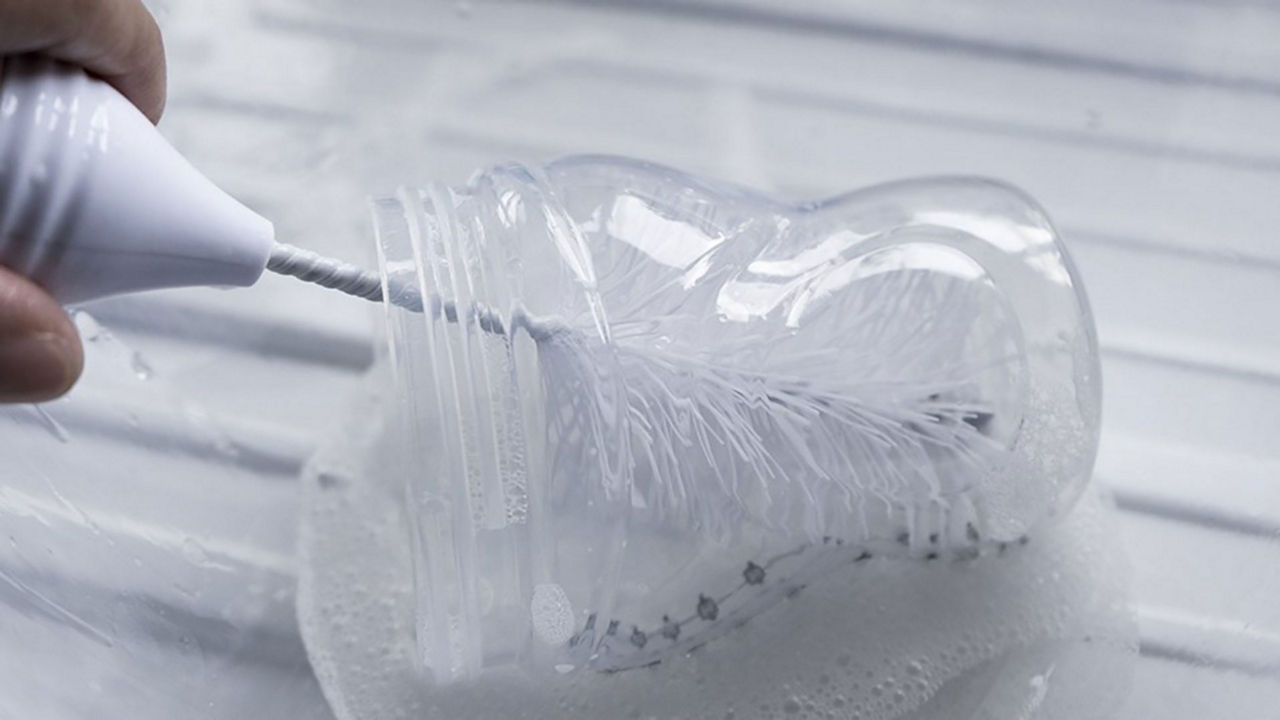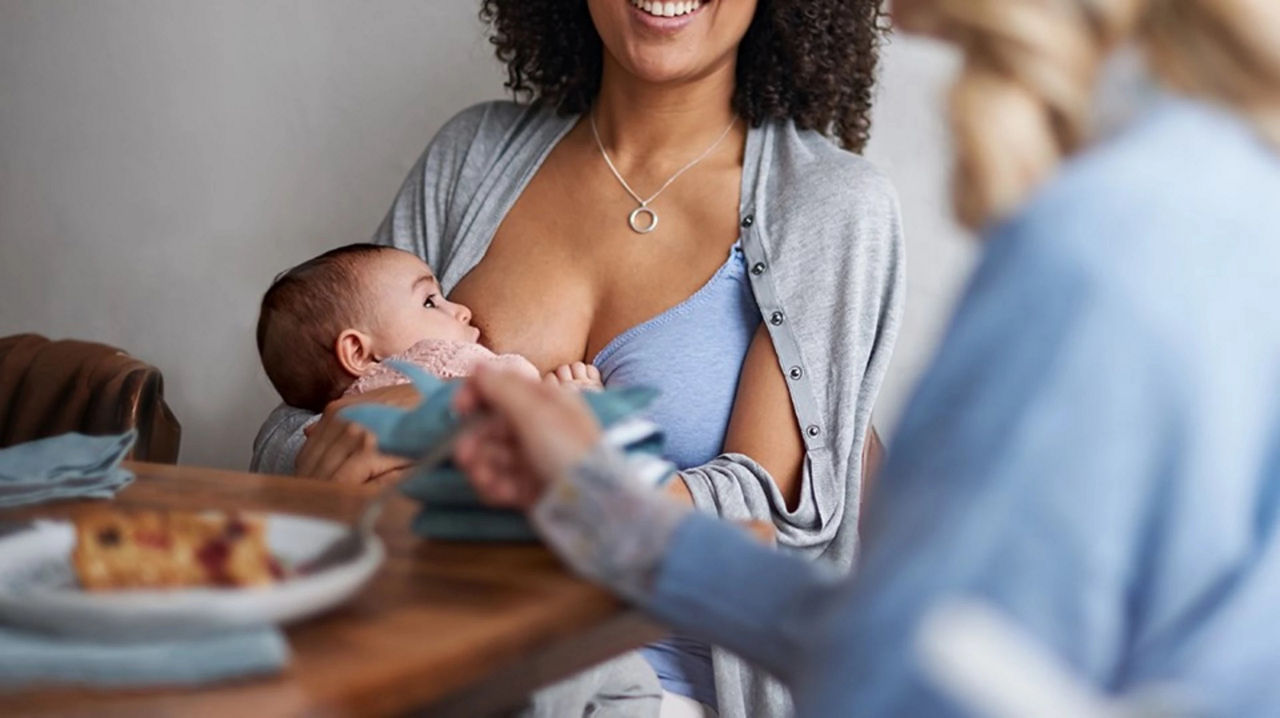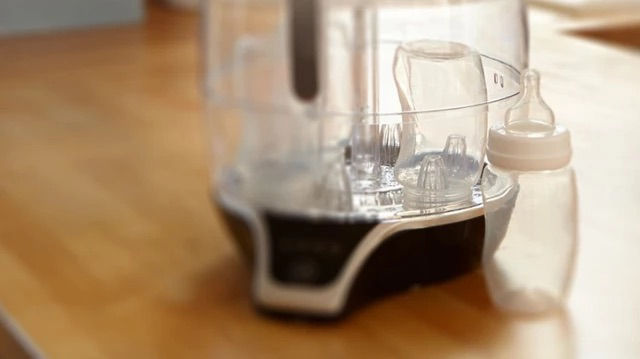Bottle-feeding in hospital
From breastfeeding and combination feeding to bottle feeding with formula milk, you’ve probably given a lot of thought to how you’re going to feed your baby during your pregnancy.
There are various and well-documented benefits of breastfeeding, and if this is the right thing for you, your midwife or other hospital health professional should be able to provide you with the breastfeeding support you need, both before and after your baby is born. You can also find some handy hints on how to breastfeed here.
Here we’ll be exploring what to expect when bottle feeding in hospital after birth, whether with expressed breast milk or infant formula, so that you can be prepared for every possible situation.
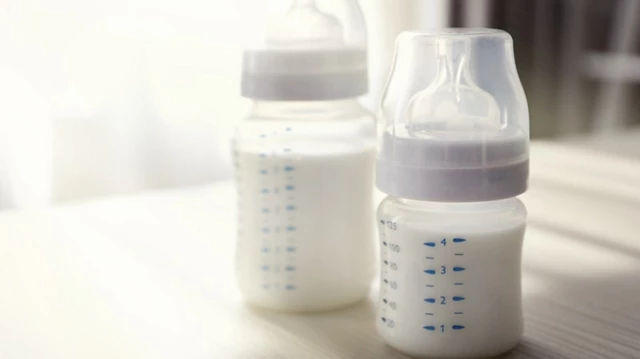
Be prepared
It’s important to know that not all NHS maternity units have accessibility to infant formula milk and bottle feeding equipment1. So, if you’ve decided to formula feed, then you’ll need to check whether you’re required to bring your own supplies, including first infant formula milk and newborn bottles.
You’ll have plenty of opportunities to ask your midwife any questions you may have about bottle feeding in hospital after birth at your antenatal appointments. You might also want to ask about the type of facilities your hospital or maternity unit has, to ensure that you can properly sterilise your baby’s feeding equipment and safely prepare their bottle feeds.

What you’ll need to pack if bottle-feeding
If you intend on bottle feeding in hospital, be prepared to bring your formula milk of choice along with you. Remember that you should only use first infant formula (also known as first milk) to feed your newborn.
Whilst infant formula milk comes in a variety of different formats, it’s advisable to bring at least one starter pack of ready-to-feed liquid infant formula, which contains six bottles and six teats2. This is because there’s no guarantee that your hospital will have the facilities needed to sterilise newborn bottles or properly store larger cartons of opened ready-to-feed formula milk or powdered formula1.
Bear in mind that there’s no way to know exactly how long you’ll need to stay in hospital after the birth of your baby, so it’s a good idea to have a family member or friend on hand to bring you more baby formula if required.
You’ll find some more general advice about what to pack in your hospital bag, along with a downloadable handy checklist, here.
Formula feeding: Preparing the first feed
Starter packs of first infant formula milk are very easy to use for infant feeding as they’re sterile, single use and disposable. They’re available, along with other infant feeding products, at most supermarkets. Read the preparation instructions on the pack very carefully, to ensure that you’re feeding your baby safely.
Some – but not all – hospitals will teach you how to make up your baby’s first bottle-feed. If they do, take the opportunity to ask any questions you might have so that you can feel confident when it comes to sterilising bottles and preparing feeds at home.
Using the right teat
Using the right teat for newborn bottles, or any baby feeding bottles for that matter, is very important. When it comes to bottle-feeding, it’s not a case of one teat fits all. Every baby is different, and you may need to use different bottles and teats until you find one your baby is happy with. Always check that you’re using the right flow teat for your baby’s age, and that the hole isn’t too big. This will make it easier for your baby to control the flow of milk and avoid them drinking too quickly3.
Keep in mind that every baby is different, and you may need to use different bottles and teats until you find one your baby is happy with. Your midwife or the baby feeding advisors at the hospital can advise you on the most suitable teat for your baby.
Your baby’s needs change constantly as they develop, so bear in mind that you might need to change bottles and teats during your baby’s feeding journey to ensure that they continue to feed comfortably.
How much milk will my newborn baby need?
You can learn more about the quantity and frequency of your baby’s feed here. At the end of the day, however you decide to feed your baby, it is important to feed them using responsive feeding. Responsive feeding, recommended by health professionals, is when you feed your baby on demand, meaning that you feed them when they’re hungry, rather than follow a feeding schedule4.
Responsive bottle-feeding
Keeping your baby close and having skin to skin contact after birth is a wonderful way to bond with them and make them feel safe, secure and calm5.
If you’re bottle feeding, UNICEF's Baby Friendly Initiative offers some very helpful guidance on responsive bottle feeding, which means following your baby’s signs of hunger and feeding them in response to their cues. For example, when they’re moving their head and mouth around, or sucking on their fingers6.
Expressing your breast milk at the hospital
In some circumstances, you may want to express your breast milk whilst you’re still in hospital. If your baby was born early for example or needs some additional medical care after the birth. Many hospitals have breast pumps available for you to use. Depending on where you live, you may also be able to hire a breast pump from a breastfeeding area local to your area7.
As always, your midwife or healthcare professional will be able to discuss the options available to you and provide the support you need.
Next steps
Following the birth of your baby, if you’ve chosen to bottle feed, it’s a good idea to add the following to your shopping list:
- Silicone or orthodontic teats.
- Small, newborn bottles (120ml/4oz), possibly wide-neck as these are less messy to fill.
- A breast pump (if you intend to exclusively bottle feed or combination feed with expressed breast milk).
- If formula feeding, your choice of ready to feed infant milk.
Watch our short video on preparing a bottle-feed.
Related articles

Need some help?
You can get quick answers to common questions in our FAQs.
Alternatively, if you need help with general pregnancy or baby advice, or maybe on using or ordering our products - our expert team are always on hand to talk about feeding your baby.
- NHS. Getting Started (Bottle Feeding) [online] 2021. Available at https://www.uhcw.nhs.uk/maternity/getting-started-bottle-feeding/. [Accessed September 2023]
- NHS. What should I pack for coming into hospital? [online] 2018. Available at https://mft.nhs.uk/app/uploads/sites/4/2018/04/What-should-I-pack-for-coming-into-hospital-February-2018.pdf. [Accessed September 2023]
- NHS. Bottle feeding advice [online] 2021. Available at https://www.nhs.uk/conditions/baby/breastfeeding-and-bottle-feeding/bottle-feeding/advice/ [Accessed September 2023]
- NHS. Start4Life. Feeding on demand [online] . Available at https://www.nhs.uk/start-for-life/baby/feeding-your-baby/bottle-feeding/bottle-feeding-your-baby/feeding-on-demand/. [Accessed September 2023]
- NHS. The Royal Wolverhampton NHS Trust. The Importance of Skin-to-Skin Contact for Parents and Baby [online]. Available at https://www.royalwolverhampton.nhs.uk/services/service-directory-a-z/infant-feeding/skin-to-skin-contact// [Accessed September 2023]
- UNICEF. The Baby Friendly Initiative. Infant formula and responsive bottle feeding A guide for parents. 2019. Available at https://www.unicef.org.uk/babyfriendly/wp-content/uploads/sites/2/2019/04/Infant-formula-and-responsive-bottle-feeding.pdf. [Accessed September 2023]
- NHS Great Ormond Hospital for Children. Breastfeeding and expressing milk for your baby at GOSH [online] 2020. Available at https://www.gosh.nhs.uk/conditions-and-treatments/procedures-and-treatments/breastfeeding-and-expressing-milk-your-baby-gosh/ [Accessed November 2023]

